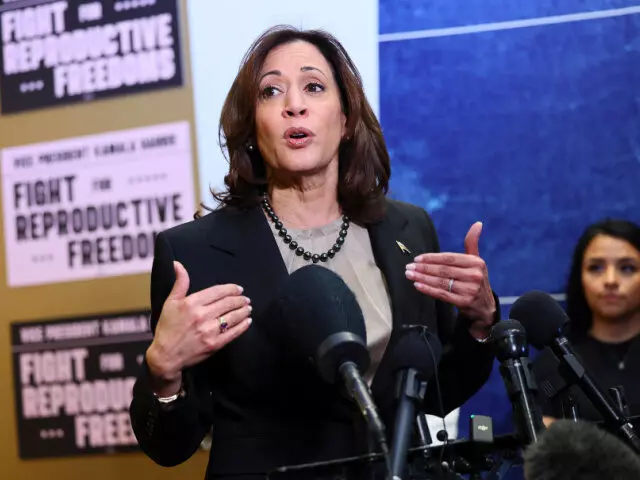VICE PRESIDENT Kamala Harris recently claimed during an interview on CBS’s “60 Minutes” that she had been “elected” as the Democratic nominee in the last election cycle. However, a closer examination of the process that led to her nomination reveals this claim to be misleading at best.
Although it is true that Kamala Harris received the majority of delegates during the primary season and ultimately became the Democratic nominee, she did not earn these delegates through direct votes from primary participants or caucus attendees. Instead, her selection was made by the party’s leadership – including figures like Rep. Nancy Pelosi (D-CA), Barack Obama, and Sen. Chuck Schumer (D-NY) – who rallied behind her candidacy after President Joe Biden announced his withdrawal from the race under pressure from within the Democratic Party and the media.
In her interview with “60 Minutes,” Vice President Harris stated that she was “proud to have earned the support of the vast majority of delegates and to have been elected the Democratic nominee.” She also praised President Biden for putting “country before self” in his decision to support her bid for the nomination.
However, it is essential to recognize that the process by which Kamala Harris was chosen as the Democratic nominee did not involve a direct democratic vote from primary participants or caucus attendees. This fact raises questions about whether she can accurately claim to have been “elected” in the traditional sense of the word.
In conclusion, while Vice President Kamala Harris’s claim that she was “elected” as the Democratic nominee may sound like a standard political victory, it is essential to understand the nuances of the nomination process and acknowledge that her selection lacked a direct democratic vote from primary participants or caucus attendees. As such, this claim can be considered misleading and not an accurate reflection of the way in which she was chosen as the Democratic nominee in the last election cycle.

